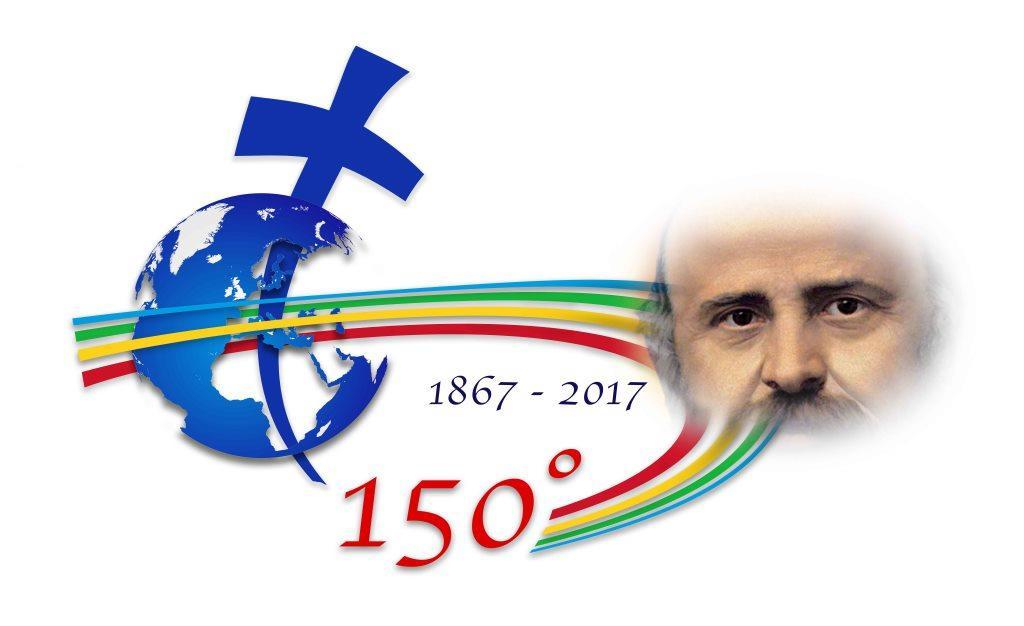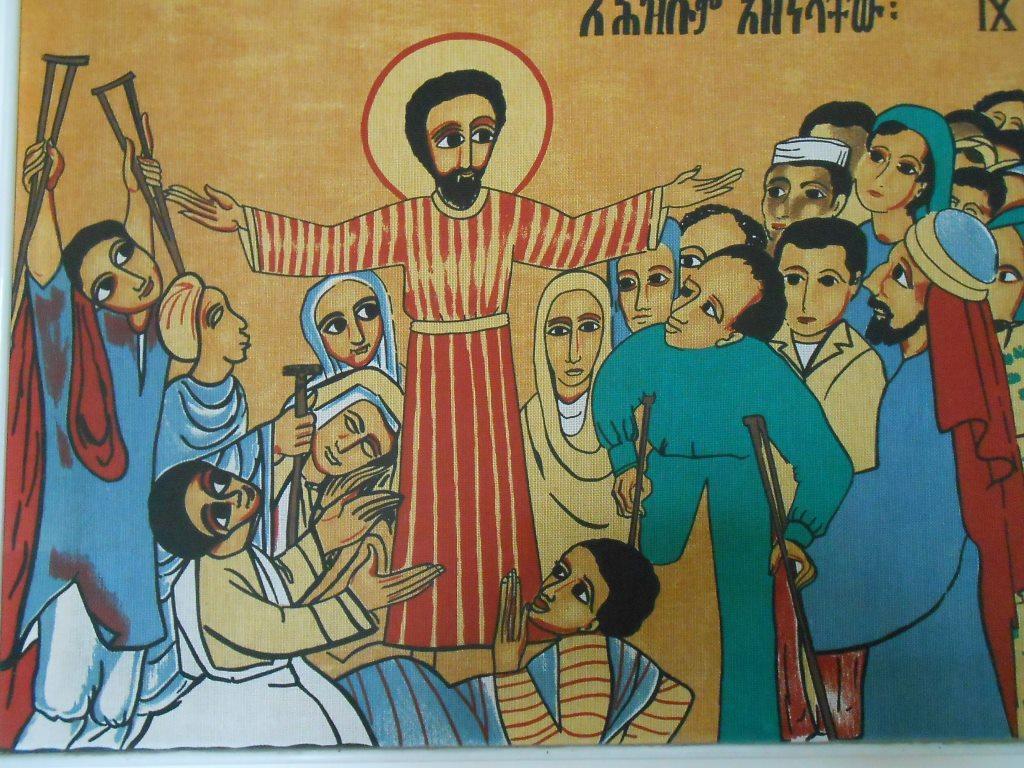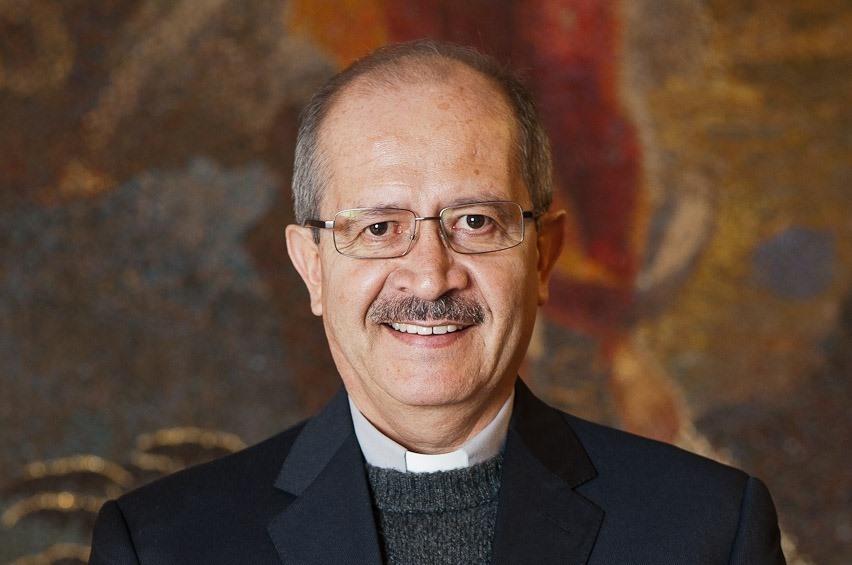Daniel Comboni
Comboni Missionaries
Institutional area
Other links
Newsletter
Sunday, January 22, 2017
On 1 June, 1867, Msgr. Daniel Comboni founded in Verona the “Institute for African Missions” which was transformed into a religious Congregation on 28 October, 1885 and acquired pontifical right on 7 June, 1895. On this 150th Anniversary of the Foundation, we wish to remember that which all of us wholeheartedly desire: the renewal of the Institute, as the Chapter invites us, also through the study of the Rule of Life, following the process that will be offered to us and making our own the challenges proposed, such as interculturality, ministeriality, reorganisation, etc. All this will allow us to re-qualify our life and the service we offer to the Church, to society and to our Institute. Let us live this 150th anniversary as an opportunity to deepen and extend the roots, to renew the strength of the trunk and to continue to be a tree that bears good fruits, fruits of justice, peace and charity, to contribute to the growth of the Kingdom of God.
LETTER ON THE OCCASION OF THE 150th ANNIVERSARY
OF THE COMBONI INSTITUTE
"The Kingdom of Heaven is like a mustard seed which a man took and sowed in his field. It is the smallest of all the seeds but when it grows it is taller than all the shrubs of the garden and becomes a tree so that the birds of the air come and build their nests in its branches."
(Mt 13, 31-32)
Dearest Confreres,
With joy and gratitude we greet you at the start of this New Year!
On 1 June, 1867, Msgr. Daniel Comboni founded in Verona the “Institute for African Missions” which was transformed into a religious Congregation on 28 October, 1885 and acquired pontifical right on 7 June, 1895.
1. Remembering the first steps (a glance at the past)
Re-reading the origins of our Institute, it is difficult for us to imagine what it would have become with the passing of time. The Gospel text quoted above refers to the plans of God who uses a pedagogy that starts from below. A God who makes use of that which, in the eyes of the world, is of no account but which, in his divine mind, becomes a project that is carried out through human collaboration. Just like the seed in the Gospel in which a great tree is concealed.
At the death of our Founder, the missionaries could be counted on the fingers of one hand. That handful of first-born children were accompanied, during the first years, by priests of the Company of Jesus. After fourteen years, they helped to lay the foundations of our Institute, seeking to give the Congregation a shape and a face of its own. At the end of the nineteenth century it had 18 Priests, 21 Brothers and 21 student candidates to the priesthood, sixty altogether.
The call of God
We who belong to the Comboni family know that Daniel Comboni heard the call of God while he was still very young, a pupil at Mazza College, first of all through reading of the testimony of the Martyrs of Japan and then by listening to the testimony of Don Angelo Vinco (W 4083), the missionary who, newly arrived from the heart of Africa, sowed in the hearts of those boys a passion for his work. Comboni, despite his youth, took a decision he would never go back on: to dedicate his entire life to proclaiming the Gospel to the African peoples who – as he understood – greatly needed to hear the Good News. Therefore, while still a follower of Mazza, he worked intensely for the African mission, passionately living as one who belonged to those yet unknown brothers and sisters.
Meanwhile, news from the African continent concerning the fate of his Mazza companions, rather than discourage him, spurred him on to join the group of missionaries who, on 10 September, 1857, set out for Africa – Giovanni Beltrame, Francesco Oliboni, Angelo Melotto, Alessandro Dal Bosco, Isidoro Zilli – sustained by Fr. Nicola Mazza’ words, which became a blessing and a challenge for them: “Work always and only for the glory of God, for all the rest is vanity. We place our mission under the protection of the Immaculate Virgin Mary and of St. Francis Xavier, the great apostle of the Indies”. That first brief experience of barely two years left a deep impression on the life of Daniel Comboni (W 465). He left his heart in Africa and thought of nothing else but what he had seen personally. It was something like the mark of baptism: Africa became for him an indelible mark, so much so that he did not want to give up the possibility of returning there (W 3156) and, in the meantime, he continued to work actively for the good of the African mission.
As it happened to other founders in following their vocation, St. Daniel Comboni also felt the need to strengthen his first call to work in the continent of his dreams and, to bring to fruition his promise to ‘Don Congo’ (Fr. Nicola Mazza) to consecrate his life to the cause of Africa, he was compelled by circumstances to become the founder of a missionary family.
This experience of his reminds us of the importance of remaining faithful to an ideal, remembering that, just as sailors let themselves be guided by the stars in order to reach their ports, we must let ourselves be guided by the teachings of the Gospel if we want to be coherent and happy people. The missionary vocation and belonging to a missionary family are a gift, not something we have merited. We are missionaries because God is good and chose to avail of us to show his fatherly face to the many brothers and sisters who do not yet know Him.
We thank God for the testimony of so many missionaries who have gone before us and have given their lives for the mission. These are the links in a long chain of which we are part, which leads us back to the origin, the source from which we were born. We belong to a family of saints of whom we should be proud. We are the fruit of the passionate love of our Founder for the mission, heirs to a vocation that springs from the Pierced Heart of God, that places us in an attitude of going forth (EG, 27) and brings us to the existential peripheries of history. Some of us have been blessed with the gift of martyrdom, the greatest expression of giving, as the Gospel reminds us: There is no greater love than to lay down one’s life for one’s friends (Jn 15,13).
2. We look at the present with realism: called to witness to the Kingdom of God
After a century and a half, we are still a small Institute: according to the statistics, we have never reached the number of two thousand members but this should not discourage us; on the contrary, it must urge us on to be faithful witnesses to the goodness and mercy of God among the least of people, those whom society has forgotten. Despite our “smallness”, we cannot forget all the good that God has done and continues to do through our missionaries. As the last Chapter reminds us: “There are many well-identified Comboni Missionaries, generous and ready to give up their lives for Christ and the Mission; they spend their lives quietly, day after day, in the various services entrusted to them. The presence of Confrères who are witnesses of the Risen Lord among the poor and marginalized is a blessing that reminds us of the reason for our vocation in life. They are ‘existential parables’, reference points in the various services that we render” (CA 2015, n. 14).
We are called to be witnesses of the Kingdom of God wherever we are sent. For this it is necessary to be always faithful to the Word and to follow a serious programme of continual renewal in our journey of discipleship.
Conversion
Still, as we look at the past, we must acknowledge that we have not always been faithful. Often, obliged by challenges or fear, we retreated when faced with adversity and trials. At times we distanced ourselves from our original inspiration and took refuge in the security of our choices, wishing to save our own lives rather than that of our most abandoned brothers and sisters.
The “Jubilee of Mercy” has just ended: let us ask God, the fount of charity, to have mercy on our incoherencies and sins, personal and institutional, and grant everyone the gift of conversion required to welcome the coming Kingdom of God (Mk 1,15), to welcome his Word and to be people who are happy with the vocation they have received (cf. CA 2015, n. 4).
Crosses, signposts on the way
When we speak of happiness, we do not mean there will be no dark clouds on the horizon. In life, difficulties raise their heads sooner or later. St. Daniel called them ‘crosses’ and we all know that, as he went ahead, the problems that emerged were becoming forever greater; but even from the darkest clouds, clear water may flow. In the same way, difficult experiences may become the crucible in which our dreams and our plans are purified. We think of those confreres who find themselves in situations of violence, extreme poverty, persecution and constant danger: all this is painful for us because we feel close to them and become fond of people and places but we also know that the cross is the guarantee of the authenticity of our missionary service.
Comboni loved to repeat that the works of God are born and grow at the foot of the cross. It is interesting to continually rediscover that crosses, for our Father and Founder, far from being obstacles, were signposts that showed him the way to follow. Crosses assured him that he was going in the right direction. Let us ask God that we may make our own the words of St. Daniel Comboni: “I am happy with the cross that, willingly borne for love of God, generates triumph and eternal life” (W 7246).
We remember that, when due to a lack of missionary personnel, the African mission was in danger of being discontinued since the Mazza Institute could no longer support it, other Institutes, thank God, joined forces with Comboni. First were the Camillians, then the Sisters of St. Joseph of the Apparition, members of other Institutes and of the laity who believed in his project.
Love for the mission overflows, it floods and renders fecund hearts and wills, to move them in the same direction. In this way, the original insight of our Founder became a beautiful reality and went forth to the many brothers and sisters he met on his path. For this reason, it is most important today to learn to work as a “network” and understand that initiatives, however good and necessary, will be unlikely to go ahead if tied up to a single individual. Our Founder, by his witness, sought to involve many people and have them participate in the mission. Very often, he had to set aside differences of vision or of points of view to keep collaborators in the mission, convinced that, only work done together had any future, because it is inspired by the Triune God who reveals Himself to be a family.
3. We look to the future with hope
Let us take heart in the present circumstances and even more in the days to come, are the words uttered by St. Daniel Comboni before he died, according to the material gathered by his biographers.
We are invited to look to the future with hope. We are living in difficult times but trials, as we have mentioned above, must not discourage us since we know the Lord has accompanied us in the past and will continue to do so, as the Gospel reminds us: Go, therefore, make disciples of all the nations; baptise them in the name of the Father and of the Son and of the Holy Spirit and teach them to observe all I have commanded you. And know I am with you always; yes, to the end of time. (Mt 28,19-20).
The last General Chapter invited us not just to conversion but also to dream of a new way of understanding and living the mission. We must ‘become mission’ announcing the joy of the Gospel in solidarity with the peoples, becoming promoters of reconciliation and dialogue, rediscovering the spirituality of interpersonal, institutional, social and environmental relationships (CA 2015, n. 20). On this 150th Anniversary of the Foundation, we wish to remember that which all of us wholeheartedly desire: the renewal of the Institute, as the Chapter invites us, also through the study of the Rule of Life, following the process that will be offered to us and making our own the challenges proposed, such as interculturality, ministeriality, reorganisation, etc. All this will allow us to re-qualify our life and the service we offer to the Church, to society and to our Institute.
Let us live this 150th anniversary as an opportunity to deepen and extend the roots, to renew the strength of the trunk and to continue to be a tree that bears good fruits, fruits of justice, peace and charity, to contribute to the growth of the Kingdom of God.
Programme of the DG for 2017:
- Letter of the GC to launch the Jubilee Year of the 150th anniversary of our Institute and the presentation of the official LOGO.
- Preparation of six bi-monthly supplements to be published in Familia Comboniana to mark three stages in the history of the Institute:
a) a reflection on our origins;
b) a glance at and reflection on the present moment;
c) acceptance of the new paradigms and challenges of the mission.
- Celebration of the Symposium in Rome (25 May-1 June).
- Meeting of the General Councils of the Comboni Family (2 June)
- A particular celebration on 10 October
- Various Initiatives
- Closure of the Jubilee Year
We invite all the circumscriptions to organise other initiatives in loco so that they become occasions for mission promotion and, above all, of the renewal of the missionary ideal and of the feeling of belonging to our Comboni Institute.
Happy Celebrations and Happy Anniversary!
THE GENERAL COUNCIL
1 January, 2017




